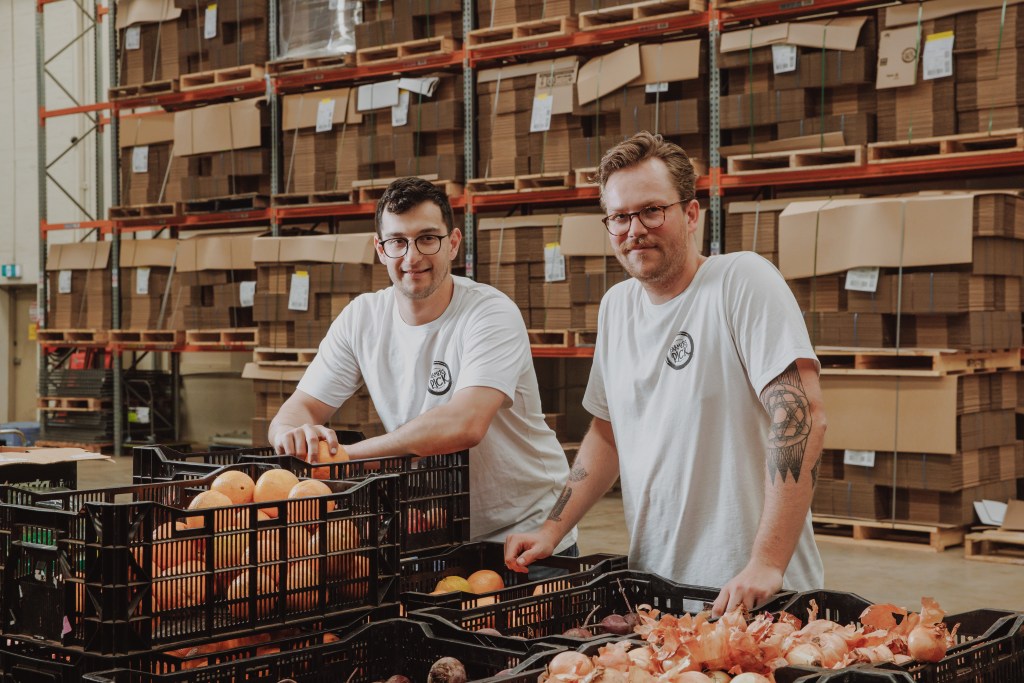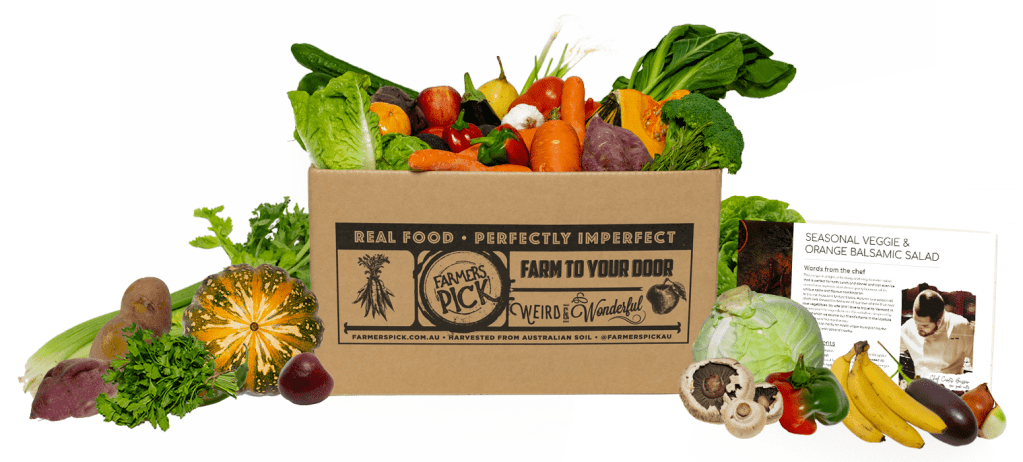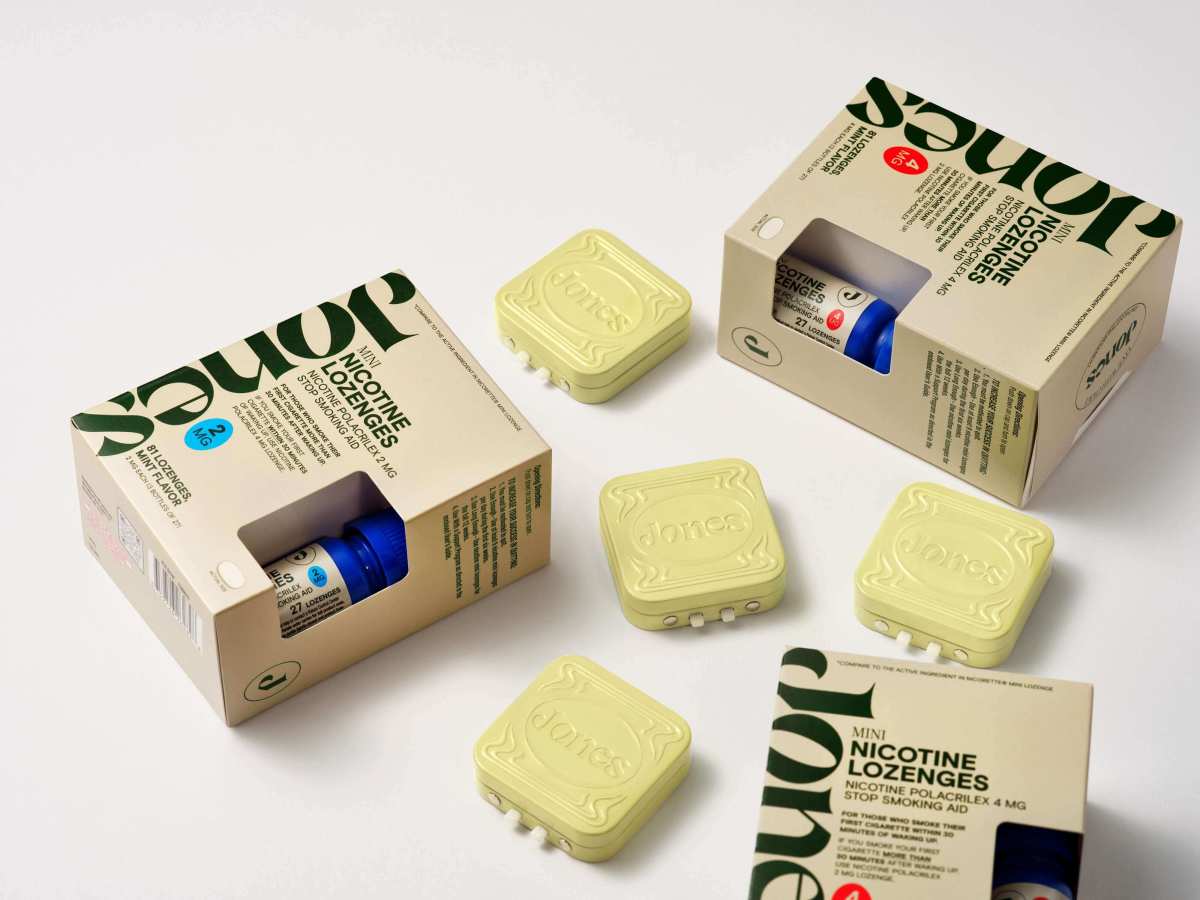Young entrepreneurs, Josh Ball and Josh Brooks-Duncan, have designed their growing fruit and vegetable box delivery business around solving Australia’s multi-million-dollar food waste problem.

About 2.4 billion kilograms of food is wasted in Australia every year. It’s something that got friends, Josh Ball and Josh Brooks-Duncan, contemplating during the pandemic. As a result, the pair have created a business that not only assists in fixing the national food waste problem, but improves the supply chain sustainability and food affordability.
Up to 30% of fruit and vegetables grown in Australia is wasted every year because it doesn’t meet the high aesthetic standards of the supermarkets. It’s a huge problem, not only for farmers and the environment, but for and consumers, who ultimately pay the price for food wastage.
Ball and Brooks-Duncan – who had full time careers in data and tech and logistics and supply chain management respectively prior to starting their business, Farmer’s Pick – are self-confessed “city guys”. They had no experience in agriculture – just a curiosity about why produce with minor flaws is discarded so readily when it is still edible.
“Our closest link to vegetables was being vegetarian,” Ball jokes. “We both had no farming background, so it was a pretty steep learning curve.”
In 2020, Ball and Brooks-Duncan began approaching farmers to see if they would be interested in selling them their “imperfect” fruit and vegetables. They then created the subscription business, to sell fresh, seasonal produce boxes at about 30% less than supermarket prices.

But convincing farmers to invest their time and effort in a new concept that didn’t have a huge amount of scale was challenging, Ball and Brooks-Duncan say. Once some larger farming organisations joined and gave them “some validation in the market”, it was an easier business proposition to pitch.
“During some of our first conversations we pretty much had blank stares. They’d motion over to a pile of carrots ditched in a pile in a field and say, ‘you want that?’,” Ball says. “I’d say, ‘well I don’t want that exact pile, but I’ll take some of them next time.’”
The pair worked tirelessly in their spare time, while holding-down fulltime jobs, for about 12 months. It involved waking up in the very early hours of the morning, travelling and liasing with farmers, returning to Melbourne and then packing the boxes – all before starting their jobs at 9am.
After having a small amount of media exposure, the pair quit their jobs to focus on the business. They say at that point, they realised that if they didn’t give Farmer’s Pick their undivided attention, they would “always regret it”.
“The additional gaps were met my Josh and myself, and it nearly broke us.”
Farmer’s Pick co-founder Josh Ball on the pressure of rapid growth
“After that, we grew about 1200% in six months. We went from working about 18-20 hours a week, in between our corporate jobs, to about six days a week, 20 hours a day” Ball says. “The additional gaps were met my Josh and myself, and it nearly broke us.”
The beauty of the company’s subscription model is that orders can be viewed at least a week ahead, allowing head office to work with farmers to see what is available and seasonal. This cuts down supply chain “touch points” and reducing environmental impact, Brooks-Duncan says.
Part of the challenge is educating customers about eating seasonally and the environmental benefits of doing so, he says.
“It’s about eating things seasonally and understanding that that’s when things taste the best. Eating a tomato in the middle of winter isn’t how things are meant to be.”
Farmer’s Pick has more than 15,000 customers throughout NSW and Victoria, and currently works with around 70 farms. Expanding nationally is a goal for the company in the next couple of years. The company, which had a crowd-funding capital raising of close to 900,000 last year, expects to increase revenue by about 300% in 2023.
“It [food wastage] is a national problem, so we fully understand that we need to have a national business to make a lasting impact,” Brooks-Duncan says.
So far, the company saves about 30-35 tonne a week in food waste. Last year alone it saved around 735,00 kilograms of produce and it plans to increase that amount in 2023.
“It’s food that would otherwise be left to rot,” Brooks-Duncan says.
“I think the fact that we’re growing validates that people can see a tangible benefit in trying to solve this [food wastage] problem.”


